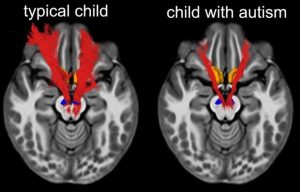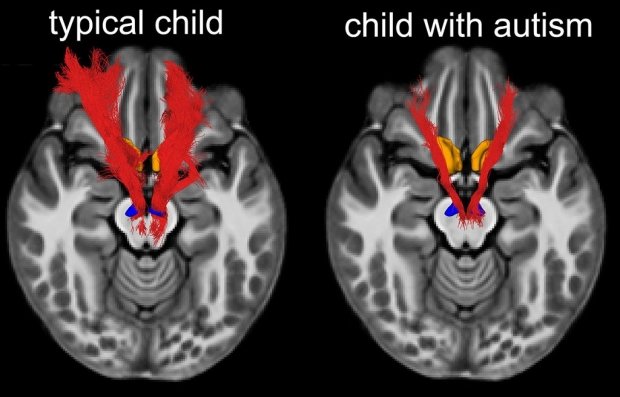A study from Stanford University School of Medicine, published in the journal, Brain, compared brain scans from children with autism and typically developing children, focusing on the pathway in the brain that typically makes social interactions feel rewarding. They found that nerve-fiber tracts along this pathway were less dense in the brains of the children with autism. These structural differences suggest that social interaction may be inherently less rewarding for people with autism, which could interfere with the development of complex social skills. Click here to learn more.



